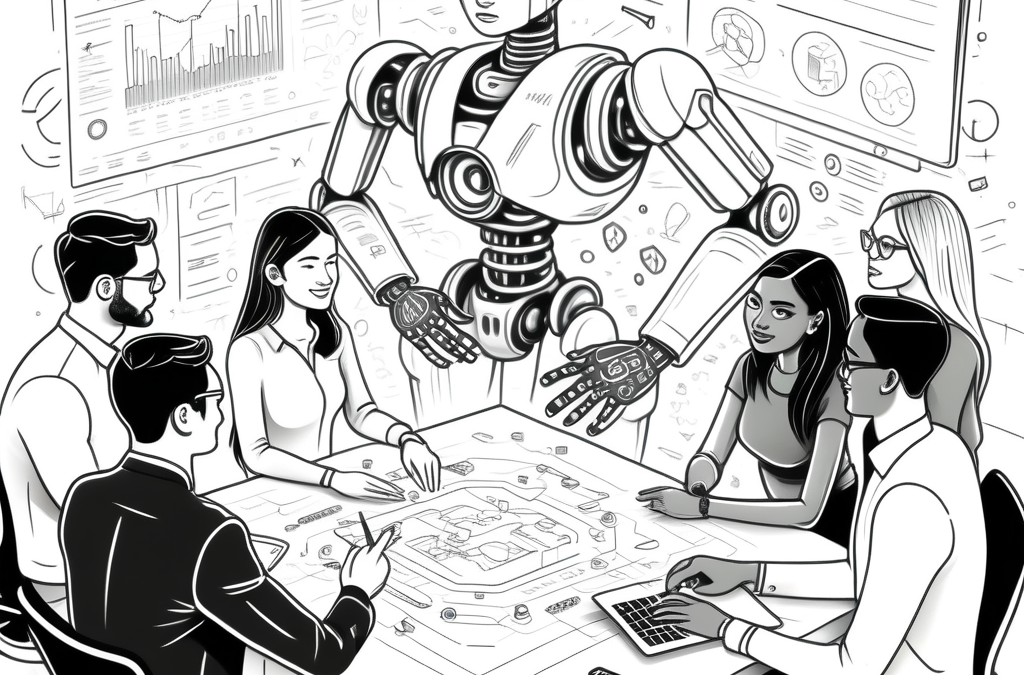Introduction
As AI revolutionizes industries and transforms lives, a pressing question emerges: can we trust the technology we’re creating? AI engineers hold the key to shaping a future where artificial intelligence enhances our lives without compromising our values. In this article, we’ll explore how AI engineers can promote ethical and responsible use of AI, ensuring that this powerful technology benefits society as a whole.
The Power of Choice: AI Engineers as Ethical Guardians
AI engineers stand at the forefront of innovation, wielding significant power and responsibility. Their choices can promote fairness and transparency or contribute to bias and inequality. Here are some critical considerations for AI engineers:
- Moral Implications: Every decision made in AI development has consequences. Questions like “Who benefits from this technology?” and “Are we inadvertently perpetuating biases?” must be addressed.
- Championing Ethics: Engineers can foster an ethical culture within their teams by encouraging open discussions on responsible AI practices.
- Collaboration: Engaging with diverse stakeholders, including users and policymakers, can enhance the ethical development process.
Building a Strong Foundation: Core Ethical Practices for AI Engineers
Establishing a solid ethical foundation is essential for guiding AI development. Here are three core practices for AI engineers:
- Transparency: The Key to Trust
- Clear and understandable algorithms build trust. Share data sources, methods, and assumptions to facilitate understanding and critique.
- Fairness: Breaking Down Bias
- Actively identify and reduce bias in datasets to ensure inclusivity. Diverse training data helps avoid harmful stereotypes and promotes equality.
- Accountability: Taking Responsibility
- Monitor AI systems post-deployment to catch unintended consequences. Being proactive in addressing issues protects users and maintains trust.
Navigating the Maze: Guidelines for Responsible AI Usage
To ensure responsible AI development, engineers can follow these essential guidelines:
- Crafting Code with Care: Write code that prioritizes ethics. Use clean, unbiased data that represents diverse perspectives.
- Fostering an Ethical Mindset: Conduct regular workshops and training sessions on ethical AI practices to empower all team members.
- Collaboration is Key: Engage stakeholders from various backgrounds to gain insights and identify potential issues early in the development process.
The Ripple Effect: How Ethical AI Impacts Society
Ethical AI can be a powerful force for good, addressing some of the world’s pressing challenges:
- Driving Social Responsibility: AI can help tackle healthcare disparities and improve environmental sustainability. For example, AI tools can identify at-risk students for targeted support.
- Real-World Success Stories: Companies adopting ethical AI practices see benefits such as improved customer trust and enhanced brand reputation.
- Your Role in Shaping the Future: Engineers can inspire others by prioritizing ethical AI and considering the real-world impact of their creations.
Strategies for Success: Promoting Ethical AI Development
To promote ethical AI development, engineers should embrace the following strategies:
- Stay Ahead of the Curve with Continuous Learning: Engage in ongoing education about ethical standards and best practices through workshops and certifications.
- Create Ethical Frameworks for Responsible AI Development: Develop clear guidelines for integrating ethical considerations at every development stage.
- Advocate for Policy Change and Regulatory Reform: Collaborate with policymakers to shape regulations promoting ethical AI development.
The Road Ahead: Future Trends in Ethical AI
The future of AI holds exciting trends that emphasize ethics:
- Ethics from the Ground Up: AI technologies will increasingly prioritize fairness and transparency, leading to greater trust.
- Diverse Perspectives in Development: Inclusivity will ensure AI solutions serve a broader audience and reduce bias.
- Ongoing Education and Awareness: Continuous learning will position engineers as leaders in ethical AI, emphasizing explainable AI and human-centered design.
Conclusion: Your Role in the AI Revolution
We’re on the cusp of an AI revolution, and your actions can shape its future! Start by learning about the core principles of ethical AI, such as fairness, accountability, and transparency. Become an advocate for ethical AI in your community and inspire others to prioritize responsible development.
Remember, the journey to ethical AI is ongoing. Stay curious, keep learning, and adapt as technologies evolve. By committing to ethical practices today, you’ll help pave the way for a brighter, more inclusive tomorrow. Together, let’s create a world where AI enhances our lives without compromising our values – a world where technology and humanity thrive in harmony!


